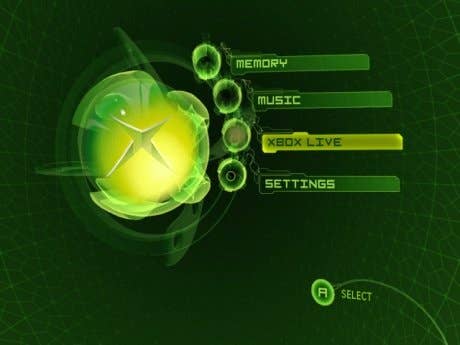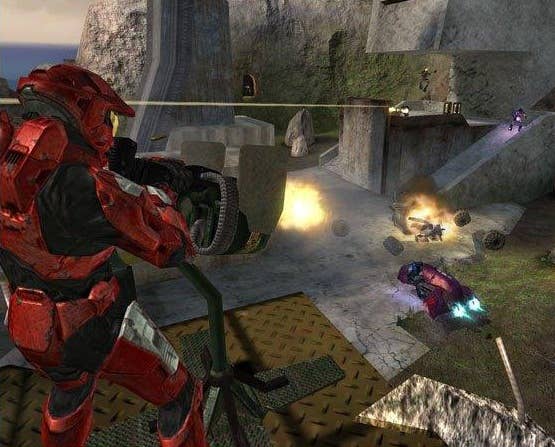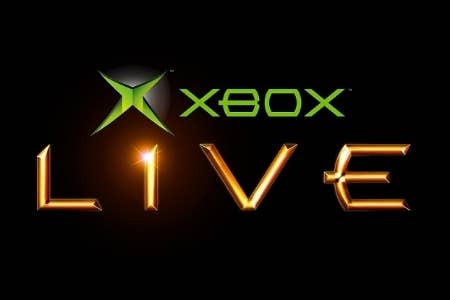Xbox Live Turns 10: Reflecting On An Online Revolution
We chat with members of the original Xbox team and Bungie in a look back at the origins of a service that forever changed console gaming
Ten years ago today, Microsoft officially launched Xbox Live. The first service of its kind on consoles charged a $50 annual fee to play a relative handful of games online, among them NFL 2K3, MechAssault, Ghost Recon, and Unreal Championship. Until that point, the only console to come to market with any sort of online focus was Sega's Dreamcast, which debuted in 1999 and was essentially dead within a year.
Undeterred by Sega's failure, Microsoft embraced online gaming as the future not only of its console, but of the industry as a whole. The company was expecting online gaming to set its console apart in the market, and committed to it in a big way, building an Ethernet port into every Xbox.
The bet paid off for Microsoft. Console gamers proved willing to pay for online play, and Xbox Live became a hit, surviving the death of the original Xbox and forming the cornerstone of the Xbox 360. Today Xbox Live boasts more than 40 million users and has become much more than just a way to play against other people online. The service now bears little resemblance to its original iteration, having added in a free membership tier, Avatars, achievements, video chat, web browsing, and a robust library of live and on-demand entertainment options spanning TV, sports, music, movies, and more.
While Xbox Live's success may be taken for granted today, Seamus Blackley, one of four former Microsoft employees who originally proposed the Xbox, said it wasn't always that way.
"It all seems really obvious now in hindsight, but it was completely crazy at the time."
Seamus Blackley
“It all seems really obvious now in hindsight, but it was completely crazy at the time,” Blackley told GamesIndustry International. “It's a little like going back and trying to remember why John F. Kennedy made decisions in the Cuban Missile Crisis, or talking about the decision to drop nuclear weapons on Japan. The fact that there's an Xbox seems like such a foregone conclusion now. I think it's really hard for people to understand that inside and outside of Microsoft, the idea that Microsoft would make a game console was so f***king nuts that it was just a joke.”
Kevin Bachus, another of the original Xbox co-creators, said that the incredulity Microsoft encountered from outside observers skeptical of its ability to enter the console world helped shape much of what the company did, both in the creation of the Xbox and the creation of Live. The company was particularly concerned about the Xbox being viewed as a low-cost PC in a box. In early consumer surveys, Microsoft found that customers were willing to accept DVD movie playback and CD functionality in their consoles, but actually had a negative reaction to the product once a web browser was introduced into the equation. For many respondents, that seemed to be the difference between a game console and a cheap PC.
“It was incredibly important from our standpoint entering the market as a console manufacturer that this thing be viewed as a console and not some sort of bizarre hybrid product,” Bachus said. “We'd seen what had happened with 3DO when they tried to say this wasn't a console, it was an entertainment device for the living room.”

Oddly enough, the Xbox platform has evolved to be quite successful as an entertainment device for the living room. The latest firmware update for the system even features a redesigned Internet Explorer web browser. Regardless of how the service exists today, the original decision to focus on games was a point of much debate within Microsoft.
“We pulled off a little bit of a political miracle by fighting off the factions who wanted to start out as a movie service--and thank God we didn't do that--and make it pure,” Blackley said. “The idea was if you can succeed and excel at making the game service and making it a part of people's lives, then you can experiment with putting other stuff in, which is exactly what happened. It worked.”
Not everything about the formation of Xbox Live worked so smoothly. Bachus said there were disagreements on virtually every aspect of the fledgling service.
“From how we were going to work with publishers on stand-alone titles to having a subscription or using Xbox Live as a loss leader to drive console adoption, we spent an incredible amount of time talking about--and more importantly testing with potential customers--all kinds of different approaches from that standpoint,” Bachus said.
For example, Bachus described a “huge and ongoing struggle” during the original Xbox development as to whether Microsoft should include the Ethernet port in the system, or settle for a built-in dial-up modem like Sega had with the Dreamcast.
“It was a very controversial decision,” Bachus recalled. “At the time, broadband penetration was very, very limited. [Less than 5 percent in the US, according to the Organization for Economic Co-operation and Development.] And the idea that someone would run an Ethernet cable to the back of their TV set was seen by a lot of people as preposterous. But we believed that was the future, and that over the life of the Xbox console, broadband home penetration would just increase, and that it would deliver a demonstrably superior experience compared to what was possible with dial-up modem speeds.”
Blackley described the creation of Xbox Live as a process beset by challenges. For one, he said it was unclear if the service would even function in the face of latency issues and differences in the way the Internet worked in different countries. The team even resorted to cold calling cable providers, trying to track down online specialists and engineers to ask about latency. Regardless of the technical obstacles, Microsoft never wavered in its commitment to Live.
“Xbox Live was intrinsically tied to the identity of the console,” Bachus said. “That was something we couldn't think about separately. There was never a notion that if Xbox Live doesn't work out, we'll just shut it down and keep selling the console as a stand-alone device. That never even occurred to us.”
"There was never a notion that if Xbox Live doesn't work out, we'll just shut it down and keep selling the console as a stand-alone device. That never even occurred to us."
Kevin Bachus
While Microsoft's commitment to the online service was solid, Bachus said third-party publishers took more convincing. Beyond simply rethinking their biggest franchises in an online-enabled context, third-parties were balking at the idea of Microsoft being the beneficiary (through Xbox Live subscription fees) of people playing their games online.
As Bachus explained, “What we did was to go up to publishers and say, 'Listen, we're building Walt Disney World here. Only we're creating the underground service tunnels. We're taking care of laying the electrical cables and getting the water pipes in place, removing the garbage, that sort of stuff. You're building the rides. You're creating the Matterhorn, Star Tours, Space Mountain. From the perspective of the consumer, your game is the experience.'”
Even with that explanation, there was friction over Xbox Live's business model. In a move that calls to mind its recent dispute with Steam, Electronic Arts was concerned about who “owned” the Xbox Live customer.
“It was EA's position that somebody who bought an EA game was an EA customer and Microsoft shouldn't even be aware of who was playing an EA game on Xbox Live,” Bachus said. “There were concerns we would try to up-sell them to our [competing products], that we would potentially muddy the waters and rob EA of their own ability to cross-sell products.”

That dispute would linger, as it wasn't until May of 2004 that Electronic Arts officially jumped on board Xbox Live. That could have gone down as the most significant Xbox Live development of the year if it weren't for the November 2004 launch of Halo 2. The first online-enabled installment of the sci-fi shooter series was a phenomenal and enduring success. By the end of its first month in stores, Halo 2 had sold more than 5 million copies. By the time Microsoft pulled the plug on original Xbox Live support in 2010, Halo 2 played host to 5.4 billion games. The game essentially defined Xbox Live during the original Xbox era, a fact that is not lost on the people who created it.
“I think Xbox Live wouldn't have made it,” said Bungie's test manager in the run up to Halo 2's launch, Harold Ryan, now Bungie's president. “I don't think the Xbox would be where it is today without Bungie and without Halo. As a group, we provided both technical and creative guidance and thought leadership that really pushed the limits. We weren't just a game developer using the service. We were integrated in the design of the service and how it worked. Systems for groups and matchmaking and skill ranking were all things that were pushed the furthest and the hardest by us.”
As multiplayer lead on Halo 2 and Halo 3, Max Hoberman described his role in the evolution of Xbox Live as “very instrumental.” The first Halo had been the biggest system-seller of the Xbox's launch lineup, and Microsoft was so eager to have its wholly owned Bungie studio cook up an online enabled sequel that it skipped the official greenlight process and went straight into development. Hoberman said that Bungie had significant influence on the development of Xbox Live, but it was influence that was leveraged in a roundabout way.
"I don't think the Xbox would be where it is today without Bungie and without Halo."
Harold Ryan
“Being internal to Microsoft, the Live team couldn't play favorites,” Hoberman explained. “They couldn't just design a feature and put it out because Halo wanted it. There's a bit of a platform holder responsibility and separation of church and state that's necessary there. It's interesting because when I first got engaged with the Live team, they were pretty clear about that. Yet at the same time, they were also clear that we were a big customer and our needs were going to have a lot of influence.”
To ensure that Bungie could still get the features it wanted, Hoberman said requests for features and backend support were always made in general purpose terms, emphasizing how all Xbox developers would benefit from particular capabilities, and not just Bungie and Halo alone. The company even went so far as to ask their other contacts in the development community to make identical requests of Microsoft's Xbox Live team.
None of the people interviewed for this article are current Microsoft employees, but all have stayed involved in the game industry.
“They'd been picking our brains as to how it should work and we gave them advice that was counter to how they were thinking originally, things that seem so obvious today,” Hoberman said. “You need a user account system where users cannot create free accounts that are fully privileged at will. People need to have personal responsibility and accountability. That wasn't what they were initially planning. We kind of helped turn it into this really safe walled garden, and over the years they've preserved that aspect, added to it, and made it feature-rich.”
Bungie's influence also led to the Xbox Live matchmaking process instead of game browsers and server lists seen in PC games. Until Bungie pushed for it, Xbox Live games didn't even have in-game friends lists, Hoberman said.

“Between Max and the game [Halo 2 lead Jason Jones] conceived in his head and the technical chops of the team we pulled together to put the game out, we really made Xbox Live and the Xbox what it is,” Ryan said.
That might not be an entirely positive sentiment. While Xbox Live was many console players' introduction to online gaming, it was also their introduction to online abuse and griefing. With experience handling online communities for games like Myth, Bungie was well aware of the behavioral shortcomings of some online gamers, but was still surprised by the Xbox Live community.
“The scale to which anonymity emboldened people who wanted to be abusive on Live was a little surprising,” Ryan conceded. “It actually turns out to be a very small percentage of people once you figure out who they are, but you remember them. It only takes one encounter with someone like that to make it feel like there are a lot of them.”
That surprise was not echoed at Microsoft. Bachus said that the Xbox team had been very concerned about player behavior, and weighed it heavily in decisions about whether to allow aliases or require real identities, whether to use voice chat or text chat, and so on. Meanwhile, Blackley said the very nature of a service like Xbox Live made such abuse a foregone conclusion.
“In terms of online interaction, it really is a cross-section of all of the wonderful and also miserable things that people do to each other online,” Blackley said. “It's the same way people talk about Twitter being a miraculous thing, but also enabling child molesters to locate victims. If you get humans involved in something and give them control of something, everything about the human race gets expressed in it.”
"It wasn't so much that I thought Xbox Live was responsible for online gaming taking off. It was going to take off anyway. What happened with Xbox was that we got it right."
Seamus Blackley
Fortunately, that includes the good as well as the bad. Ryan described some of his favorite stories of Xbox Live interactions, anecdotes of people who have used the service as a way to reconnect with their relatives and children the world over. Or an autistic gamer who has used online games of Halo to open up avenues of human interaction he wasn't going to get on his own.
As Blackley put it, “The most beautiful thing about Xbox Live was that it showed gamers have that full spectrum of emotions and that gamers weren't aliens. They were real people in real ways. It showed how important playing games was to their lives and how passionate they were about it. And that passion came out in positive ways and negative ways, but the important part is it expressed that range of emotion. And I think that was a surprise to a lot of people.”
While there were doubts as to the fate of Xbox Live specifically, one thing that the key players at Microsoft or Bungie agreed on was the inevitability of online gaming. Having already seen it established on the PC, Ryan knew it would similarly take over the console world when he saw the lengths to which people went to play the network-enabled--but not Xbox Live compatible--Halo: Combat Evolved online. Some enterprising players cobbled together their own online services for the game, while Ryan said the armed forces reported problems with sailors on submarines rewiring their bunks so they could play Halo against each other.
“I certainly felt like there was a revolution coming in online games, but I didn't think that it had to do with a specific platform,” Blackley said. “I thought it had to do with the tastes of the audience. It wasn't so much that I thought Xbox Live was responsible for online gaming taking off. It was going to take off anyway. What happened with Xbox was that we got it right.”









